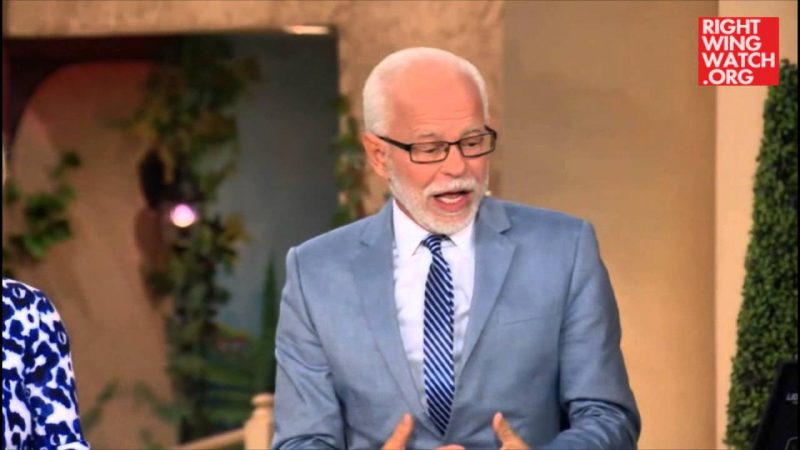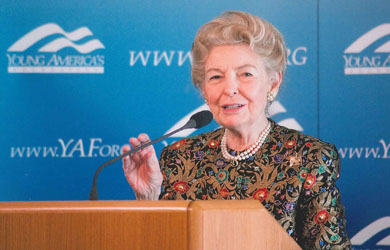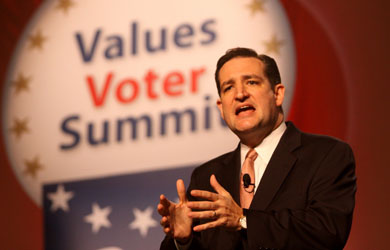Women on the Web has posted an interesting profile of Phyllis Schlafly that chronicles her rise from a right-wing ideologue to anti-feminist crusader to icon of the “pro-family movement.”
The piece contains lots of good information and quotes from Schlafly, such as this explanation as to why she engenders such disdain from feminists who object to her right-wing views and point out that she “doesn’t live up to the norm of the stay-at-home mom [that] she promotes so heavily.”
As Schlafly sees it, they are all just jealous of her grandchildren:
I think it’s much more fun to have a home, have a spouse, have children. Absolutely. And most of the women I debated in the 1970s don’t have what I have, which is grandchildren. But they made their choice. The trouble is they’re not happy with their choices, and I’m very happy with mine.
It also contains this insightful observation about how Schlafly’s success in torpedoing the Equal Rights Amendment relied in large part on her ability to “simply scare supporters straight to her camp.”
Many argue that the Vietnam War provided a bloody backdrop for the ERA debate, and presented Schlafly with a nearly impenetrable argument. If ERA passed, she said, then young women would have to enroll in the Army and, perhaps, find themselves face to face with the Viet Cong, a prospect that pleased no one, including Schlafly’s opponents … Though she doesn’t equate her argument with scare tactics, Schlafly is definitely well aware that fear did play at least an unspoken part in her success: “The draft was a real hammer hanging over the head of every young man, in addition to the Vietnam War being very unpopular. It was something worth being scared about.”
The attempt to scare people about complex issues they might not understand has often been at the core of Schlafly’s efforts over the years which is something I learned a few years back when I was writing a report on the Right’s opposition to international institutions such as the Genocide Convention and the International Criminal Court (a report which is unfortunately no longer online, but you can get the archived version here.)
During the 1980’s when Ronald Reagan was pushing for the US to ratify the Genocide Convention, Schlafly was leading the fight to prevent it and a driving force to make any US participation little more than “symbolic”:
Despite the fact that the Genocide Convention was ratified by the requisite 20 member states in 1951, for forty years right-wing groups, ranging from the racist, anti-Semitic Liberty Lobby to the Eagle Forum, urged their allies in the Senate, such as Jesse Helms and Strom Thurmond, to do everything in their power to prevent U.S. ratification of the Genocide Convention. With the exception of Dwight Eisenhower, every president from Harry Truman to Ronald Reagan had endorsed the treaty, but right-wing groups nonetheless vigorously lobbied against its ratification.
In the early 1950’s and 1960’s, ultra-conservative opponents of the treaty warned that ratification of the Genocide Convention could lead to genocide prosecutions of American citizens for participating in lynchings, or that the United States could be held accountable for committing “genocide” against blacks or Native Americans. Intentionally ignoring the Convention’s own requirement that such actions qualified as genocide only if they were carried out with the intent to destroy such groups, opponents repeatedly asserted that it would endanger Jim Crow laws and undermine states’ rights while putting American citizens at risk of being charged with genocide for engaging in discrimination or segregation.
Even after the Reagan administration began arguing in 1984 that ratification was necessary to blunt international criticism and charges of hypocrisy on the issue of human rights, right-wing groups and individuals continued to attack the Convention. The Eagle Forum’s Phyllis Schlafly called the Convention a “piece of propaganda and a constitutional embarrassment” as well as a “trap to ensnare American citizens and our allies.”
Ignoring these attacks, the Senate finally adopted a resolution of ratification in 1986 by a vote of 83 to 11. But even with the passage of the resolution, known as the Lugar-Helms-Hatch Sovereignty Package, the U.S. did not immediately become a party to the convention. At the insistence of several right-wing senators, ratification moved forward only with the additions of various “reservations,” “understandings,” and “declarations.” The inclusion of these reservations in effect “defanged” the Genocide Convention, as Sen. Helms boasted during the ratification debate: “[T]his Genocide Convention upon which we are about to vote is purely symbolic. We might as well be voting on a simple resolution to condemn genocide.” The Sovereignty Package also stipulated that the U.S. would not officially become a party until the Senate enacted domestic legislation implementing the convention and almost another three years passed before that legislation, known as the Proxmire Act, was enacted.
This history is particularly relevant today, as the International Criminal Court just issued an arrest warrant for Sudanese President Omar Al Bashir. The ICC was initially conceived as part of the Genocide Convention but only came into existence in 2002 and, just as she opposed the Genocide Convention, Schlafly and her Eagle Forum vehemently oppose the ICC.
The debate over whether the US will cooperate with the ICC warrant or perhaps even consider officially joining the ICC will likely become hot topics of discussion in the coming weeks and months and you can rest assured that Schlafly and the Eagle Forum will not hesitate to reach into their bag of tricks and deploy countless scare tactics about the court in order to oppose it








